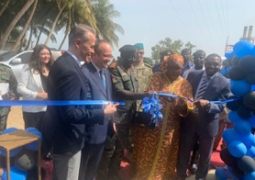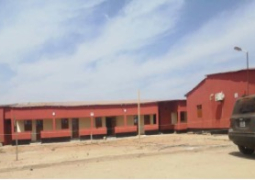From Brikama-Ba, Janjanbureh and Bansang, women shared different opinions surrounding this deep-rooted cultural practice, which some believe is part of religion.
In an interview with The Point, Kumba Dansera, lady councillor of Janjangbureh shared that she is a traditionalist and believes in her tradition.
However, she explained that Female Genital Mutilation or Cutting is a practise she inherited, adding that one only practises it ‘if the knife is found within your lineage’ and that it was done the right way by cutting just the tip. “What is practised recently is really harmful which generates other complications.”
To that end, she applauded lawmakers for taking a step in maintaining the ban on FGM, acknowledging the fact that women have right to decide what happens to their bodies and that no one deserves to live a life of pain.
She alluded that in her capacity as councilor she would continue to engage more communities and beyond to raise what she called, evidence-based awareness to educate them on critical issues as they have been educated and convinced by experts.
Anta Jorbateh, president Regional Mothers Club in CRR, explained that the lawmakers have acted on the voices of survivors and women to safeguard the right and protection of the next generation. “They have proven that a woman should not be in pain all her life as women have right to enjoy thier natural liberties.” she said.
The bill, she added, has also created the atmosphere for survivors to come out and narrate how FGM has negatively affected their lives which they have been battling with for a long time because it is termed a taboo to talk about issues like this.”
She thus urged for the enforcement of the law to completely put an end to the deep-rooted cultural practice. “I believe in my religion and tradition, circumcision is optional as far as I know. I believe in the practice. However, our country is not an Islamic state. We are governed by laws thus, if the law banned the practice we should abide by it and avoid confrontation and conflict within ourselves.” says Tida Jallow, a native of Bansang.
However, Fatou Tunkara, Bansang alluded to the fact that the practice has been in existence for the longest time. “I have been circumcised and I did not face any challenges ever since. Therefore, a ban should not be placed on this. Rather, it should be left optional for people who want to practice it.”
Jama Gaye, Bansang also expressed the fact that people who are against the ban on FGM are not safeguarding the future of the next generation.
“We have been sensitised and they have enlightened on the dangers associated with the practice thus, we should do away with it.”
Binta Kuyateh, a resident of Brikama-Ba expressed her commitment to practicing her religion and tradition.
“I have been circumcised years ago and have had all my children without complications. Circumcision is another way instilling good manners to your girl-child. Therefore, I am against the ban. They should allow us practice what we believe.”
Tida Kanyi, another resident of Brikama-Ba, faults lawmakers for failing to engage the electorates, on what they want. “They should not just take decisions without putting us into consideration as we are the ones they are representing. I am disappointed that they uphold the ban on our tradition.”
Read Other Articles In National News
NAMs trained on core values of human rights
Sep 21, 2023, 12:09 PM




